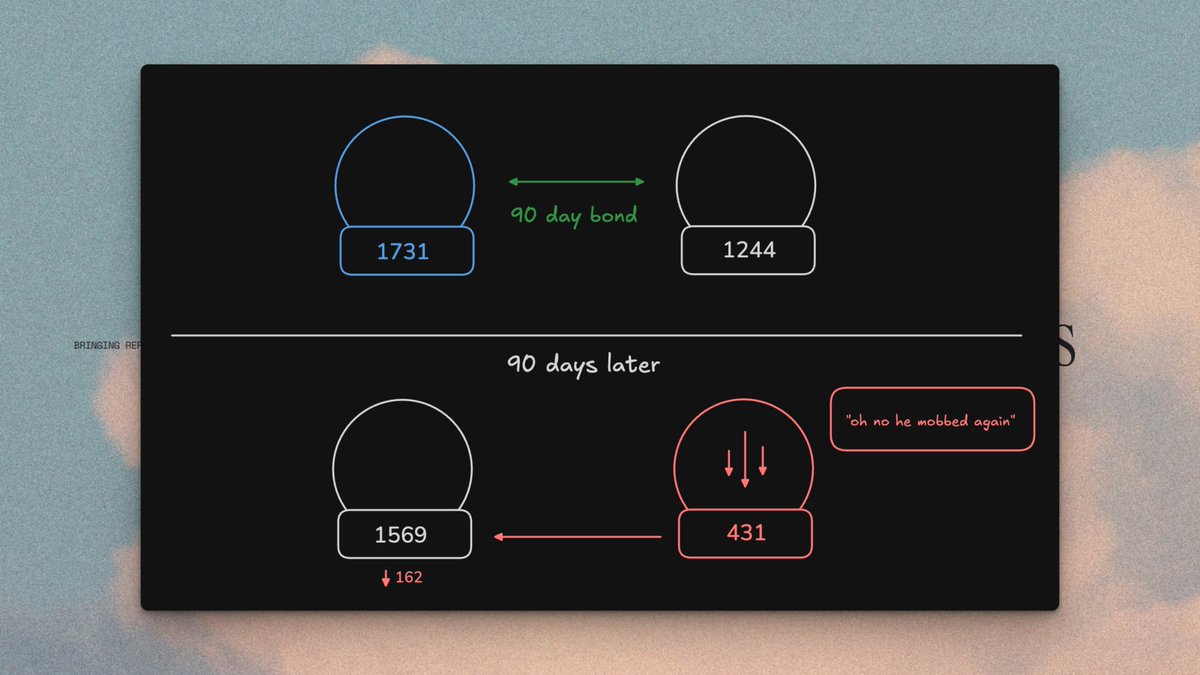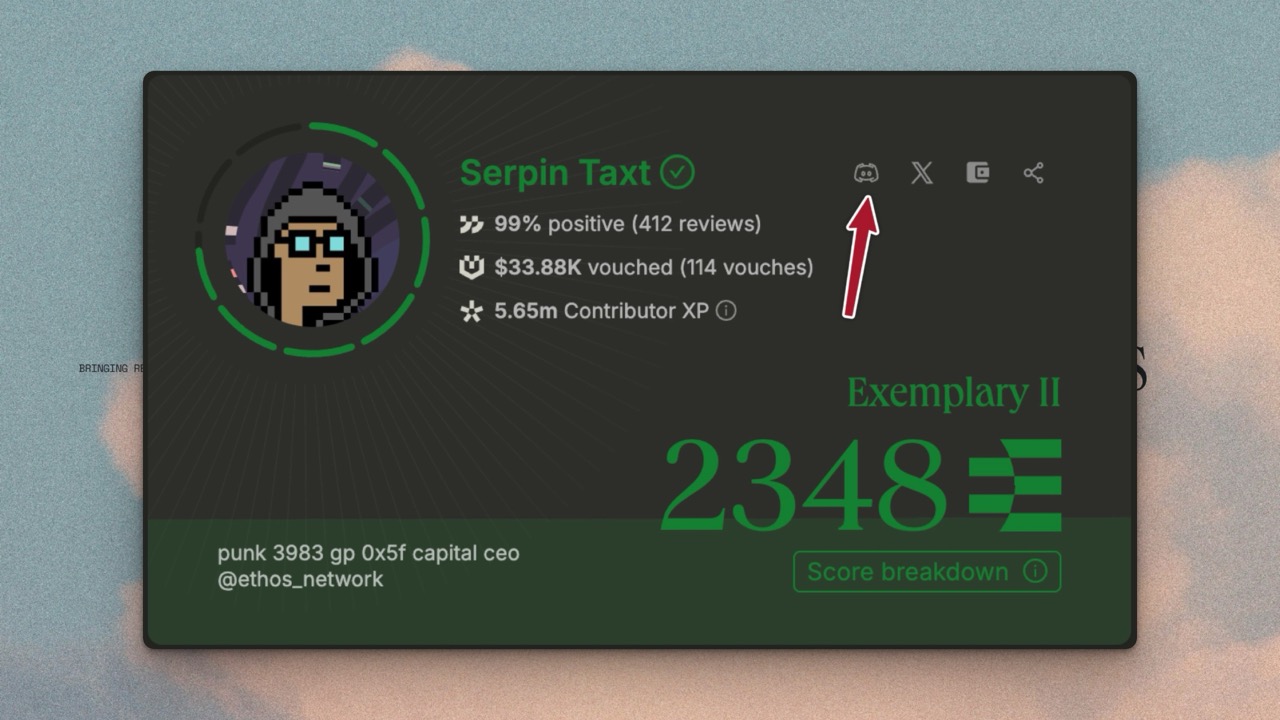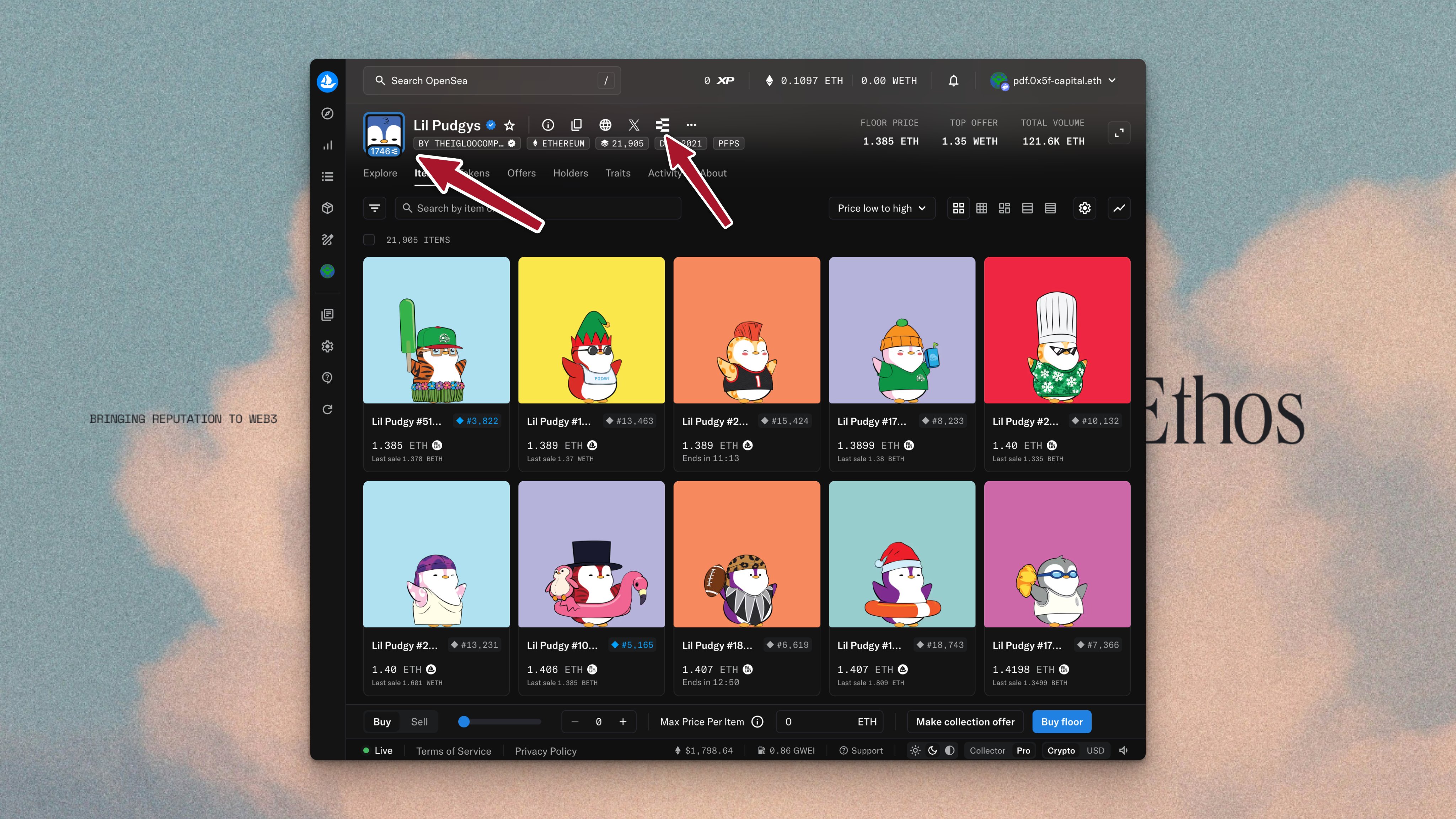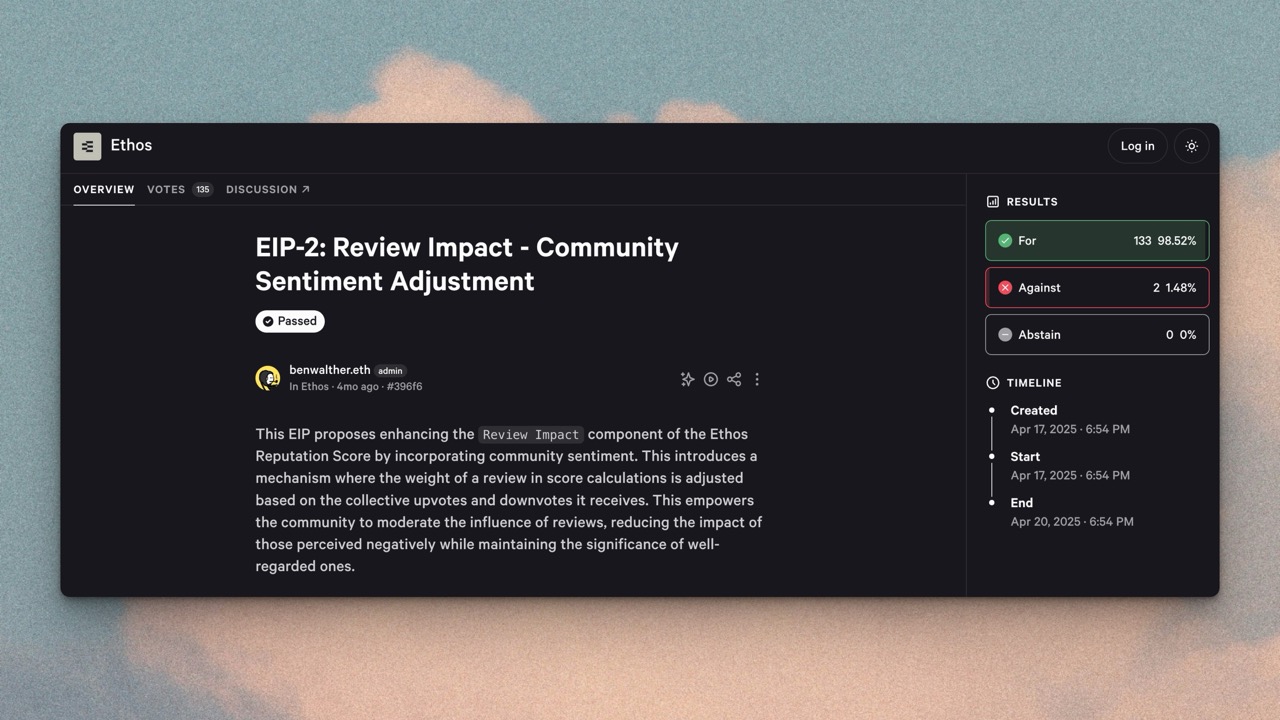How Ethos Resists Mob Culture
One of the fundamental problems with traditional web2 reviewing and scoring systems—like Yelp, Glassdoor, or Steam—is their vulnerability to mob reviews, censorship, and manipulation. You see it everywhere: Steam reviews bombarded every time a new Madden or NBA 2K game drops, restaurants attacked by competitors, or disgruntled groups systematically destroying reputations. Here's how Ethos addresses and solves these critical flaws.

Anonymous Reviews: A Fundamental Problem
In web2 platforms, reviews typically come from anonymous or pseudonymous accounts. There's little to no personal risk involved: users can easily create accounts, drop scathing or excessively flattering reviews, and disappear without a trace. This scenario is akin to shouting insults from a moving car—low effort, zero accountability.

The anonymity and lack of repercussions incentivize bad actors to manipulate reviews on a massive scale. Individuals or groups can effortlessly orchestrate review bombings, harming businesses or individuals with minimal effort. The core issue? Reviews are free, identities are disposable, and reputational consequences are nonexistent.
Ethos' Web3 Approach: Proof of Reputation
Ethos takes a fundamentally different approach, modeled after the Proof of Stake concept but with humans as validators. At its heart is a sophisticated system designed to resist mob culture through weighted credibility and economic incentives.

Weighting System:

Every Ethos "node" or profile carries a reputation score, analogous to the ELO system used in competitive ranking. The weight of a user's opinion directly correlates with their reputation: users with proven credibility have a significantly higher impact on the network than new or untrusted profiles. Consequently, less reputable profiles exert minimal influence. This design ensures users must build and maintain a strong, positive reputation before significantly affecting others' credibility.

Social Capital and Risk
Ethos measures social capital objectively, assigning tangible value to maintaining a reputable identity. Your reputation on Ethos is directly tied to your identity, creating a meaningful asset you won't want to jeopardize.

Participating in mob behavior now carries substantial risk—negative actions can result in losing social capital or credibility. If network participants deem your actions harmful, they can negatively review or even "slash" your reputation, inflicting serious consequences. This deterrent fundamentally changes user behavior compared to disposable, anonymous accounts prevalent in web2 platforms.

Invitation Bonds and Identity Stakes

A critical element in Ethos' resistance to mob culture is the invitation system. Users can't simply create a new account whenever their reputation suffers. Instead, entry into the Ethos ecosystem requires a formal invitation from an existing user. Moreover, these invitations carry a 90-day bond between inviter and invitee, intertwining their credibility.

If an invitee behaves negatively, harming the network’s trust, it reflects directly on the inviter, who then risks their own reputation. This dynamic strongly incentivizes careful consideration before issuing an invitation, and significantly hampers attempts by users to casually discard tainted identities and start anew.

Proof of Stake: Economic Security Through Slashing
Ethos further reinforces its network against manipulation by adopting economic security principles similar to Proof of Stake blockchain models. While reviews themselves remain free, the network implements an economic "staking" component for validators—humans who validate reviews and vouches.

In future iterations, vouching for another user carries financial risk. If someone engages in harmful behavior and gets "slashed," they lose both credibility and potentially financial assets (ETH). Slashers must put up a financial bond to initiate a slashing proposal, providing clear evidence. Over 24 hours, the network reaches consensus, determining the outcome.

If confirmed, the offending user suffers credibility and financial losses, significantly increasing the cost of negative behavior. This economic dimension creates an additional robust defense against mob manipulation.

Conclusion

Ethos combats mob culture by intertwining identity, social capital, and economic incentives. Unlike web2, where identities are disposable and actions inconsequential, Ethos makes reputation valuable, accountable, and economically meaningful. This comprehensive approach not only protects users but cultivates an authentic and trustworthy community.




